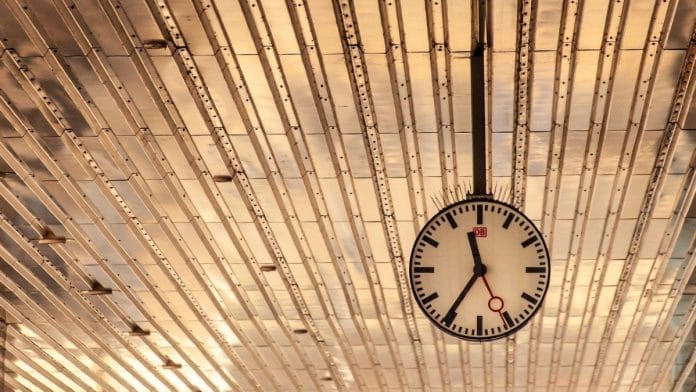New Delhi: Do you know that artificial intelligence (AI), that can do your homework, solve complex math equations, and even write a song, struggles to interpret clock-hand positions or correctly answer questions about dates on calendars?
Researchers from The University of Edinburgh have found that most artificial intelligence models have a hard time comprehending information from the two arms of an analogue clock, and are unable to correctly answer questions about dates on calendars.
This is because while these large language models or LLMs have been trained on a lot of data for calculations and can recognise most shapes and signs, these simple tasks require a bit more. It takes spatial awareness, context and basic math to be able to read a clock.
In their current form, LLMs lack this information.
If LLMs are able to overcome this though, they could be used for a whole range of applications including being digital assistants and scheduling appointments.
These findings have been stated in a peer-reviewed paper to be presented at the Reasoning and Planning for Large Language Models workshop at The Thirteenth International Conference on Learning Representations (ICLR) in Singapore on 28 April. Read More
Also Read: The Ozone layer is recovering & it’s because of human actions—scientists are 95% sure
Microplastics can make antibiotics ineffective
There’s a new study that talks about a particular effect of microplastics on health: these tiny plastic particles in your body could end up rendering antibiotics useless.
Scientists from Boston University tested how microplastics increase antimicrobial resistance. They put E. coli bacteria in contact with several different kinds of microplastics in the same incubator. They found that within 5-10 days, the bacteria were more resistant to regular antibiotics than before.
In fact, the bacteria developed multidrug resistance to the four most common antibiotics, regardless of whichever kind of microplastic it was incubated with.
The peer-reviewed study is important for understanding the health impacts of microplastics, especially in ascertaining that these microplastics don’t just carry bacteria but also actively aid antimicrobial resistance. The research was published in Applied and Environmental Microbiology journal this month. Read More
A new theory of black holes
There’s a fascinating new study in Physical Review Letters journal by two UK physicists. They propose a theory that looks at black holes not as endings but beginnings.
The mysterious celestial objects known as black holes are those regions from which not even light can escape. In the depths of the black hole, in what is known as its singularity, the way we understand time and space ceases to exist.
But, in quantum mechanics, that is not possible. Time as we know it cannot end because quantum mechanics proposes that systems keep evolving and changing, according to the authors of the study.
What the physicists propose instead, using the laws of quantum mechanics, is that in the singularity of the black hole, time transitions into a white hole, where the laws of physics are the exact opposite of what they’re supposed to be in a black hole. So, time and space don’t end as we know, instead, they begin from the black hole.
The theory opens up a whole new host of considerations about black holes and time, and also about the role of dark energy. Read More
Conspiracy theorists could just be sleep-deprived
University of Nottingham scholars have published research that found that lack of sleep often increases susceptibility to conspiracy theories.
In their two studies, conducted on over 1,000 participants, the authors found that people who had poor sleep quality were more likely to believe and endorse conspiracy theories when exposed to the content, as compared to those who did not.
Published in Sage Journals, the research also pointed out that depression, anger, and paranoia, could be contributing factors.
Conspiracy theories can fuel distrust in science and public institutions, leading to vaccine hesitancy and climate scepticism.
The findings suggest that sleep is essential for mental health and critical thinking, and that sleep-focused interventions may help people resist misinformation. Read More
(Edited by Nida Fatima Siddiqui)
Also Read: Why are humans able to speak & learn complex languages? The answer could be locked in a gene variant






